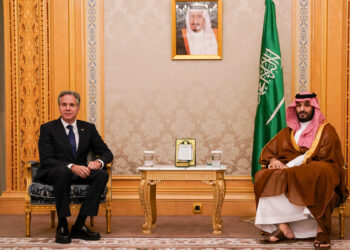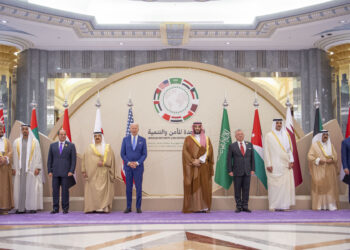Nora Noralla, an Egyptian human rights researcher and consultant, is a research fellow at the Information Society Law Center at the University of Milan. She has worked in different capacities with the Cairo 52 Legal Research Institute, Human Rights Watch, Article 19, and the Berkman Klein Center for Internet & Society at Harvard University.
Each year, thousands of girls in Egypt are married off before their 18th birthday, despite government attempts to enact policies to combat child marriage in the country. In 2017, Egypt recorded about 118,000 cases of child marriages, which account for 40 percent of all marriages in Egypt annually.
These numbers come as a direct result of Egypt's weak legislation on child marriage. In 2008, Egypt passed amendments to its child and civil status law to address child marriage, but they only banned the registration of marriage certificates for those who are under the age of 18. The amendments did little else. They did not provide for any criminal sanctions for those who organize, aid and incite child marriage, which is particularly widespread in areas hit most by poverty.
Faced with a clear failure of previous policies, the Egyptian Cabinet moved this past April to introduce a new draft law that seeks to address these legal shortcomings around child marriage. In addition to the existing prohibition on registering child marriage certificates, the new law proposes that "every person who participated in the marriage of a minor younger than 18 years old is punished by five years in prison and an EGP 100,000-200,000 ($5,000-10,000) fine." The law also obligates the marriage officer, or the mazoun, to notify authorities of any customary marriage, or 'urfi marriage, where one or both parties are under the age of 18. Failure to do so places the marriage officer under criminal liability, with a penalty of imprisonment of no less than one year, in addition to a fine between 50,000 and 200,000 Egyptian pounds, or between $2,000 and 10,000.
Any pre-arrangements for child marriage, such as engagements or promises to marry, are also prohibited under the new draft law. Parents who force their child into early marriage risk losing the authority of guardianship over the child. Furthermore, the draft law places criminal liability over any person who is involved in inciting or promoting child marriage.
The law is more likely to pass as it is an extension of Sisi's feminist-washing propaganda, which claims to promote women's rights in order to cover up the regime's widespread human rights abuses.
- Nora Noralla
However, the new draft law comes with its own controversies. It allows parties found guilty of sexual molestation and rape under Egypt's Penal Code to submit a petition to a judge for approval to register a marriage certificate for a person under 18. Human rights advocates have described that as a "rape loophole."
"The draft law positively tackles a lot of the shortcomings of the previous law and policy. However, it is catastrophic to see a 'rape loophole' being put into it," a member of the legal unit at Barah Amen, or Safe Space, a feminist-led advocacy group based in Cairo, told me. "This loophole rewards a rapist by allowing him not only to marry a child but also to receive a reduced sentence, as is the case in rape cases where the offender is marrying the victim."
The law also falls short in addressing the issue of so-called "marriage tourism," where a child bride is offered to a rich tourist, often from the Gulf states, for a temporary marriage during their visit to Egypt, in order to bypass the country's human-trafficking and sex work laws. According to a study published by the Oyoun Center in Egypt, 80 percent of victims of marriage tourism cited poverty as the reason they were married off temporarily to a wealthy Arab tourist—and child brides accounted for 35 percent of these marriages.
Between 2017 to 2021, there were several attempts by members of Egypt's parliament and governmental entities, including the National Council for Childhood and Motherhood and the Ministry of Justice, to pass new laws criminalizing child marriage. None were successful.
This new draft law comes after a public push against child marriage by Egypt's strongman, President Abdel-Fattah al-Sisi. Sisi directed the National Council for Childhood and Motherhood in 2014 to issue Egypt's first "national strategy" to eliminate child marriage. In 2015, he issued a presidential decree to withdraw Egypt's official reservation on Article 21 of the African Charter on the Rights and Welfare of the Child, which prohibits child marriage under the age of 18. The draft law also comes directly after Sisi expressed his dissatisfaction with the spread of child marriage in Egypt in March of last year and this past February. Both times, Sisi directed parliament to quickly introduce new laws criminalizing child marriage.
The draft law is more likely to pass as it is an extension of Sisi's feminist-washing propaganda, which claims to promote women's rights in order to cover up the regime's widespread human rights abuses. The regime's propaganda machine highlights those advancements even as it cracks down on female journalists and human rights defenders and has forced several feminist NGOs to shut down under Sisi's rule.
"All state agencies are in the service of Sisi," says Zizi Mostafa, a researcher from Cairo 52 Legal Research Institute. "If Sisi says he wants a law against child marriage, he will get that law. Those who are not familiar with the Egyptian context will think that having the president issuing public instructions to a legislative assembly is weird, but in Sisi's Egypt, it is normal."
"You cannot uproot decades of pro-child marriage by a law. Since the introduction of the previous law in 2008, we saw over and over again people promoting child marriage in the name of religion and imams being complicit in it."
- Zizi Mostafa, a researcher from Cairo 52 Legal Research Institute.
The new draft law has already been met with praise from Sisi's cronies in the government. "The new law reflects the high position that Egyptian women occupy—at all ages—in the vision of the new republic under President Sisi, who always issues directives to ensure this vision is met in every aspect," the second deputy speaker of the Senate, Phoebe Fawzy, told an Egyptian newspaper.
Sisi's crusade against child marriage is driven by Egypt's economy. For years, Sisi and his loyal ministers have been blaming overpopulation as a cause of Egypt's economic troubles, with its population now exceeding 100 million and projected to reach 192 million by the middle of the century. For Sisi, child marriage will drive overpopulation, placing a further burden on a weakening economy and its near-record high debt.
But feminist groups in Egypt are still skeptical that the draft law will pass in its current form. "The law seems to be too ambitious," Barah Amen says. "We think that the criminalization will remain, but sentences will be reduced. In essence, a water-downed version is more likely to pass."
Lessons can be learned not only from previous laws on child marriage in Egypt, but from similar issues, such as female genital mutilation. Despite being criminalized in Egypt in 2007, female genital mutilation has not gone away, even after Egypt's Cabinet strengthened the law against it in 2021 with expanded jail terms of up to 20 years. The law has turned out to be little more than ink on paper. It still is not fully implemented, with selective enforcement, various loopholes and a lack of public awareness campaigns around female genital mutilation. The new law on child marriage could meet the same fate if policies tackling its root causes are not introduced alongside it.
Child marriage and female genital mutilation emerge out of the same socio-religious context. Poverty and radical religious narratives have been driving factors for child marriage for decades in Egypt. The country's poverty rate has increased from 27.8 percent in 2015 to 32.5 percent in 2018, despite Sisi's claims of economic progress. Imams have often been found guilty of organizing child marriages through unregistered marriage certificates, for customary or 'urfi marriages.
"You cannot uproot decades of pro-child marriage by a law," says Mostafa. "Since the introduction of the previous law in 2008, we saw over and over again people promoting child marriage in the name of religion and imams being complicit in it."
In 2019, al-Azhar, Egypt's highest religious authority, issued a fatwa calling for the elimination of child marriage to align its positions with that of Sisi. The National Council for Childhood and Motherhood has announced in the past five years several policies for "action plans" regarding child marriage, with the aim to raise awareness and tackle its underlying causes.
The success of the new draft law will hinge on the enforcement of those policies and the revival of a progressive religious narrative on child marriage, especially in rural Egypt, rather than a reactionary justification for child marriage from imams and other religious authorities. If successful, the new law can provide a blueprint for the Egyptian authorities where past laws have failed on the rights of women and girls. Despite its evident shortcomings, the new draft law on child marriage could still provide much-needed shelter to the children of Egypt.







